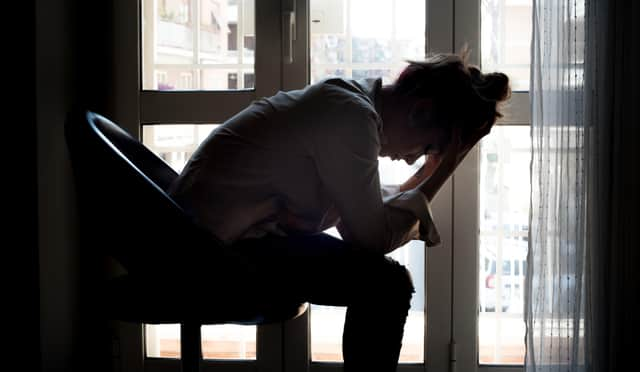Loneliness will not go away just because Covid lockdown rules have changed


Or indeed the build up and anticipation of live music.
For countless people across Northern Ireland, the Stormont executive’s continued easing of restrictions over the summer has allowed us to rebuild our lives.
But the end of lockdown isn’t a cause for celebration for everyone. There is a new uncertainty for some who are at risk of being left behind.
Advertisement
Hide AdAdvertisement
Hide AdSome will be reluctant to get out and about again for fear of catching the virus. Others will have lost their confidence and social connections.
The challenge for the executive now is to build a connected recovery. That means building the right plan to redevelop people’s wellbeing and connectedness to their communities, while also ensuring no one is left behind.
During the pandemic, British Red Cross research found that those living alone, those who were clinically vulnerable or clinically extremely vulnerable, and those caring for others were the most likely to report feelings of depression, loneliness and isolation.
Unfortunately, for many of these people, loneliness won’t go away simply because the rules have changed.
Advertisement
Hide AdAdvertisement
Hide AdWe know from our long-standing community work supporting people who are lonely, that unwanted and prolonged loneliness and isolation can seriously affect our ability to connect with others in a satisfying and meaningful way.
Over time, loneliness can make us feel more anxious and less confident, and can ultimately cause us to disconnect from those around us.
It’s not uncommon for the Red Cross to work with people like this who haven’t left the house in months or years, who no longer open the curtains, get out of bed, or open the post. But, while the causes of people’s loneliness and isolation can be complex, the solution is often simple.
Through our services, which provide person-centred, one to one practical and emotional support, we’ve seen how far a little bit of trust, time to listen, and open conversations can take us.
Advertisement
Hide AdAdvertisement
Hide AdThat’s why the Red Cross is calling for the executive’s recovery plans to include an investment in confidence and reintegration support for those most at risk of being left behind and alone.
But supporting people to develop the attitudes, skills, and motivation to connect with others, won’t be enough on its own.
Day-to-day barriers often prevent people from forming and maintaining relationships - from high travel costs and unreliable public transport, particularly in rural areas, to digital isolation and a lack of affordable, welcoming public spaces with adequate facilities.
Time and again people have told us that a lack of facilities like public toilets, and places to sit with shelter from the weather have limited their opportunities to meet others in person.
Advertisement
Hide AdAdvertisement
Hide AdAs we emerge from the pandemic, we need to prioritise ‘loneliness-proofing’ our public spaces.
Going forward, the executive needs to further explore barriers and invest in solutions like these and take forward a comprehensive strategy focussed on tackling loneliness and connecting communities in Northern Ireland.
Northern Ireland is currently the only part of the UK without a Loneliness Strategy in place and this needs to change.
An effective response to loneliness would require relatively small investment from the Executive but would see huge long-term benefits for our health and social care services and communities as a whole.
Advertisement
Hide AdAdvertisement
Hide AdLoneliness negatively affects our health, wellbeing, productivity, and our resilience. Addressing it, therefore, is in everyone’s interest.
And there’s never been a more important time to do it.
• Sharon Sinclair is Operations Director for British Red Cross, Northern Ireland
——— ———
A message from the Editor:
Thank you for reading this story on our website. While I have your attention, I also have an important request to make of you.
With the coronavirus lockdown having a major impact on many of our advertisers — and consequently the revenue we receive — we are more reliant than ever on you taking out a digital subscription.
Advertisement
Hide AdAdvertisement
Hide AdSubscribe to newsletter.co.uk and enjoy unlimited access to the best Northern Ireland and UK news and information online and on our app. With a digital subscription, you can read more than 5 articles, see fewer ads, enjoy faster load times, and get access to exclusive newsletters and content. Visit https://www.newsletter.co.uk/subscriptions now to sign up.
Our journalism costs money and we rely on advertising, print and digital revenues to help to support them. By supporting us, we are able to support you in providing trusted, fact-checked content for this website.
Ben Lowry
Acting Editor